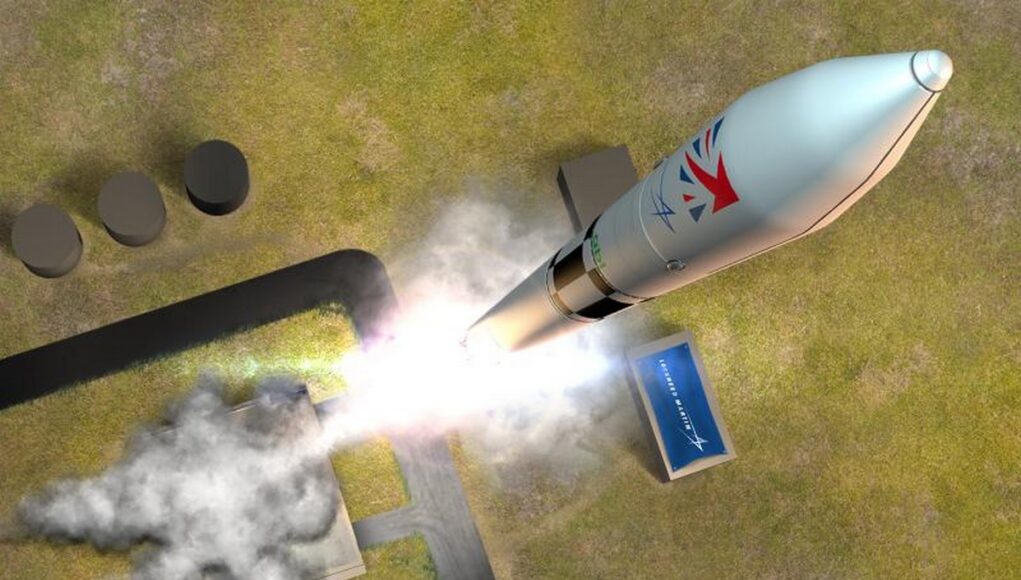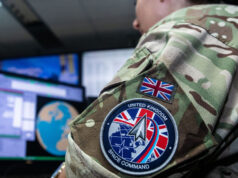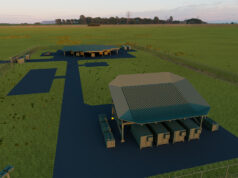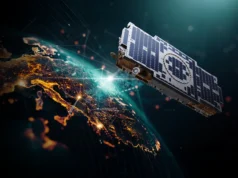The project, known as the UK Pathfinder Launch, is planned to be the first ever vertical small satellite launch from UK soil, from Scotland in 2022.
Previously, the UK conducted a single orbital rocket launch from Australia back in 1971. No rocket has ever been launched to orbit from the UK itself before, something that will be changed next year.
Lockheed Martin has contracted ABL Space Systems, of El Segundo, California, a developer of low-cost launch vehicles and launch systems for the small satellite industry, to supply a rocket and associated launch services for the company’s first UK vertical satellite launch.
It will also be the first UK commercial launch for U.S.-based ABL Space Systems’ new RS1 rocket.
Nik Smith, Regional Director, Lockheed Martin Space, said:
“We are absolutely committed to the success of this programme and the world class capability that ABL Space Systems brings will allow us to build on our long-standing partnership with the UK and strengthen the growth of the UK space sector, aligned to the UK Government’s prosperity and industrial strategy.”
Harry O’Hanley, co-Founder and CEO of ABL Space Systems, said:
“ABL Space Systems is proud to partner with Lockheed Martin on the UK Pathfinder Launch Program. Our team was founded to deliver new launch capabilities, on-demand. We’re thrilled at the opportunity bring our system to Shetland’s launch site and execute this ground-breaking mission with our partners.”
Ian Annett, Deputy CEO, UK Space Agency said:
“We want the UK to be the first in Europe to launch small satellites into orbit, attracting innovative businesses from all over the world, accelerating the development of new technologies and creating hundreds of high-skilled jobs across the whole of the UK. Lockheed Martin’s selection of ABL Space Systems for their UK Pathfinder launch brings us one step closer to realising this ambition – putting the UK firmly on the map as Europe’s leading small satellite launch destination.
In this challenging time, it’s more important than ever that we support technologies that will help create jobs and economic growth, enabling people and businesses across the country to benefit from the commercial opportunities offered by the UK’s growing space sector and the many firms throughout its supply chain.”
You can read more from Lockheed here.











“They” do know it blows a gale in those parts, quite often! having a big alloy tube on it’s end, full of fuel and expensive hardware may be difficult to keep upright. This may limit launch opportunities.
I was thinking that. Considering how often launches are cancelled in Texas and Florida because of inclement weather makes me wonder how suitable the north coast will be
Black Arrow was tested near The Needles on the Isle of Wight, thoght that would have been a better place
Difficult to launch to polar orbits from as youd need to launch over the uk or France
There’s a fascinating rocketry museum along the cliff from The Needles, though I think the Isle of Wight is too crowded these days for serious space activity.
Black Knight and Black Arrow were manufactured on the IoW by Saunders-Roe, but launches were made from Woomera, Australia.
When engines were tested near The Needles, the roar could be heard across the Channel in France!
Between this and Virgin Orbit, the UK space programme is really picking up steam. Great stuff
So once again, we have another example of the dirty habit of slapping ‘British’ or a union flag on a project which isn’t actually British. It’s an American rocket, led by Lockheed Martin.
When are we actually going to make a British rocket? Do we not have the talent? It’s a bit like our nuclear problem. We need nuclear but we don’t have enough investment or talent, so we palm it off to the Chinese.
Bloody nora!
Very true. We do have the capability to do this. Perhaps we do need to buy a few rockets to start with but then we should look to produce these in the UK. Oneweb could be one such customer for launches and there are many more.
Check out Skyora. They are I think a UK company that is closest to producing a launch vehicle.
Space technologies | Skyrora
Thanks for the link, looks really interesting. I just hope Reaction Engines are making progress. That is sure to be a revolutionary project.
Until recently, the talk was all about Orbex
Orbex still going ahead last I heard.
The sad thing is, we could have been the first in space: http://www.astronautix.com/m/megaroc.html
The stupidly of it all. What speed do the winds get up there? I hope it is a commercial success but let’s see how many countdowns are stopped.
Here is a Twitter thread showing the various potential UK launch options in the next few years. Quite a lot going on.
https://twitter.com/skywatcherintel/status/1359112497651941383
After Brexit, Britain still will use the space center in French Guyana?
No. That’s used exclusively by the ESA and the U.K. isn’t in the ESA anymore, but will still work with them collaboratively where possible. The U.K. is developing two domestic launch sites; this one in north Scotland and another in Cornwall
“The UK’s membership of the European Space Agency (ESA) is not affected by leaving the EU as ESA is not an EU organisation.”
https://www.gov.uk/guidance/uk-involvement-in-the-eu-space-programme
Exactly, ESA is a cooperative project separate from the EU, people need to realise that not every collaborative European project is EU run.
Pretty sure that “first in Europe” spot has been taken a while back..
https://www.flightglobal.com/space/for-flexible-vega-second-launch-a-step-up-in-complexity/109468.article
Vega is launched from the Kourou space centre in French Guiana, South America. It uses the same launchpad that was used for Ariane 1-3 launches.
Good Morning.In the 1960’s we were heavyweights in Aircraft and Nuclear power but strangely, never opted into the Space business-not just lagging but being totally absent alongside the US and France, so this is welcome news and is the kind of high tech endeavour in which the UK excels. I remember seeing a short clip about twenty years back featuring a small commercial venture that launched a small rocket with great fanfare, as the start of a British project to launch a satellite into orbit but after the initial launch disappeared without a trace!
UK didnt pursue launchers but is one of the largest supplier of satellites in the world holding 30% of the market, overall the UK has a 5.5% market share of all space spending.
Thanks for that-wow, never knew we were up there with such a big market share. Good to know. Cheers